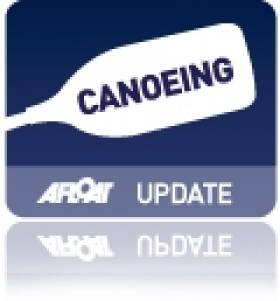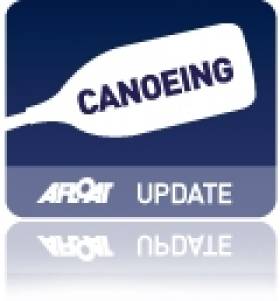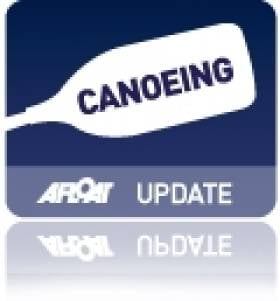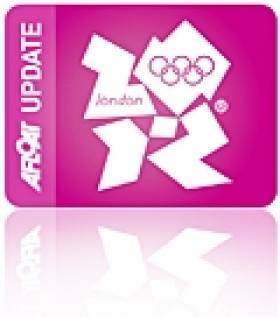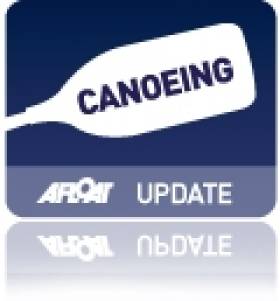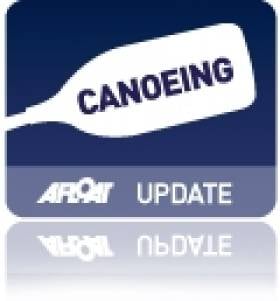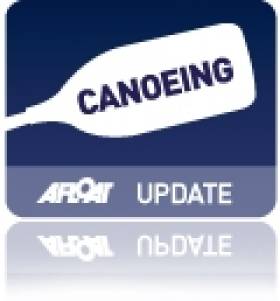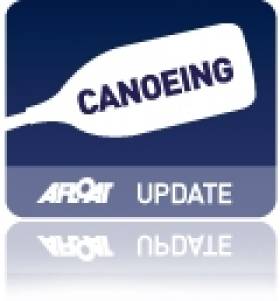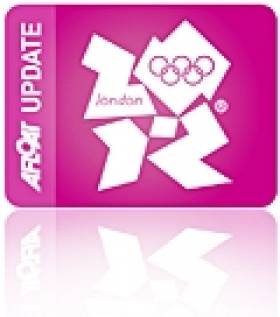Displaying items by tag: Eoin Rheinisch
Heurteau Ranked 10th in 2012 Canoe Slalom World Cup Standings
#CANOEING - The Irish Times reports that Ciaran Heurteau is 10th in the World Cup standings for 2012 in the K1 slalom.
The Irish paddler, raised in Paris, has competed in all five Canoe Slalom World Cup events this year, with his best result of 5th place at Pau in France in mid summer, as previously reported on Afloat.ie.
More recently the 25-year-old finished 15th at last weekend's event in Bratislava, Slovakia.
Heurteau, who was beaten to a spot at the London Olympics by Eoin Rheinisch, is at 47th place in the latest International Canoe Federation (ICF) world rankings, which are decided from results over a two-year period.
He stands nine places ahead of Rheinisch, who lost out on a place in K1 final in London after a disastrous 50-second time penalty in his semi-final run.
Rheinisch Penalty Costs Ireland in Semi Final
It all went wrong for Eoin Rheinisch in the semi final of the canoe slalom at the Olympic Games today. Surprisingly good times set by the early starters in the K1 at the Lee Valley course put pressure on the 32 year old Kildareman; but he was still in the mix to make the final until gates 18 and 19 which come after a big drop. He came through gate 18 but was carried too far and could not make it back to negotiate 19 (an upstream gate). He incurred a 50-second penalty and lost his chance of making the top 10 and progressing. He said afterwards that he was devastated and that the back of his boat had clipped the side of the course and he could not recover.
Olympic Canoe Slalom Qualifying Spots Snapped Up in Lucan
#CANOEING - The Irish Times reports that Eoin Rheinisch and Ciarán Heurteau have secured their canoe slalom qualification spots for London 2012 after last weekend's selection races in Lucan.
Three places were up for grabs in the men's K1, with the third yet to be confirmed after fourth-placed Patrick Hynes contested a touch on a gate by third-place finisher Sam Curtis.
Canoeing Ireland's recently appointed general manager Karl Dunne said the objection is currently being considered.Meanwhile, in the women's K1, the qualifying spots went go Hannah Craig, Helen Barnes and Aisling Conlon.
The qualifiers will be part of the European Championships in Augusburg, Germany from 10-13 May, where Olympic spots are available for boats from two countries not already qualified.
'Podium Athletes' Face Funding Cuts in 2013
#OLYMPICS - Yesterday Ireland's Olympic hopefuls celebrated recognition of their success in the 2012 round of funding.
But cuts to the budget of the Irish Sports Council (ISC) have prompted a "major" review of high performance programmes from 2013 onwards, the Irish Independent reports.
Finbarr Kirwan, director of high performance at the ISC, said: "Changes are coming, things are tight and we will have to make strategic cuts in the next two years."
The result could be fewer grant awards of lesser value for athletes, as Olympic qualification standards are set to get tougher from here on out.
The two tiers below 'podium class' - in which individuals receive awards of €20,000 and €12,000 respectively - are expected to be hardest hit in the review.
As previously reported on Afloat.ie, canoeing's Eoin Rheinisch, swimmer Grainne Murphy and sailors Annalise Murphy, Peter O'Leary and David Burrows each received the top level of funding of €40,000 each, which is on a par with last year's support.
The Irish Independent has more on the story HERE.
Ireland's Hopefuls Test London Olympics Canoeing Course
Ireland's four Olympic canoeing hopefuls were invited to take part in an Olympic test event to mark one year till the start of next summer's games, The Irish Times reports.
Eoin Rheinisch and Ciarán Heurteau in men’s K1 joined Hannah Craig and Aisling Conlan in women’s K1 to compete in closed-door elimination rounds at Lee Valley Whitewater centre on Thursday.
The event mirrors the format of next year’s Olympic Games, so the field of 52 competitors in the K1 men's competition were set to be reduced to 21 for today's finals.
Rheinisch – who finished fourth in Beijing three year ago – made positive comparisons between the man-made course in north London and the Chinese venue.
Five Represent Ireland at Canoe Slalom World Cup
Eoin Rheinisch joins four others representing Ireland at the Canoe Slalom World Cup today.
Ciarán Heurteau, Patrick Hynes, Hannah Craig and Aisling Conlan round out the squad competing in Leipzig, Germany.
Rheinisch told The Irish Times that he was "shattered" after a week of hard training in Bratislava, aiming for the World Championships and Olympic qualification there in September.
"But they are the kind of sessions I need to be getting intermittently,” he said.
Big Weekend for Ireland's Canoeists in Balkans
Eoin Rheinisch made a good start in the K1 qualification round at the Canoe Slalom World Cup in Slovenia.
The Kildare native - who is recovering from a shoulder operation - finished 10th in the heats, qualifying for yesterday's semi-finals where he finished in 28th place.
The Irish Times reports that he described the performance as encouraging.
“I enjoyed myself today and that was my goal,” he said.
In other action from Slovenia, Hannah Craig failed make the semi-final in the women’s K1, while Patrick Hynes and Ciaran Heurteau missed out in the men’s K1.
Meanwhile in Serbia, Salmon Leap's Jenny Egan set a new Irish women's record of 1m 55.9 sec in the 500m semis at the European Sprint Canoe Championships in Belgrade, the Evening Herald reports.
She went on to finish ninth in both the 5,000m final annd 200m B final.
Fellow Salmon Leap member Barry Watkins placed fourth in the 500m B final and eighth in the 1,000m B final.
Rheinisch Back in the Paddle
Olympic kayaker Eoin Rheinisch was back in canoe action in Spain recently for the first time after a shoulder operation last year.
The Irish Times reports that Rheinisch, who had surgery on his left shoulder last November, placed 34th in the canoe slalom European Championships at Seu d’Urgell.
The Kildare native confirmed that his fitness has not fully returned, but is getting better "day by day".
"The real goal is to get the high-intensity fitness back,” he said.
Rheinisch has four more events on the calendar before the World Championships and Olympic qualifiers in Slovakia this September.
Sailing Determined to 'Stand on Podium' in 2012
Irish sailing bosses are determined to "stand on the podium" at the 2012 Olympic Games.
That was the message from last week's briefing by Ireland's four Olympic 'water sports' of canoeing, rowing, swimming and sailing, covered in The Irish Times.
For next summer the Irish Sailing Association has narrowed its focus on three boat classes - the Star Class, 49er and Laser Radial.
But the competition will be tough, with more than 40 countries vying for a handful of remaining Olympic spots at the Perth Sailing World Championships in December.
Other sports are more modest in their aspirations, with rowing rebuilding from the ground up with younger athletes, and Swim Ireland pushing forward with a streamlined team and plans to have six swimmers compete in London next summer.
In canoeing, Eoin Rheinisch - who placed fourth in the canoe slalom in Beijing - was on hand to discuss his qualification hopes, with two chances to clinch a spot between now and the games.
The Irish Times has more on the story HERE.


























